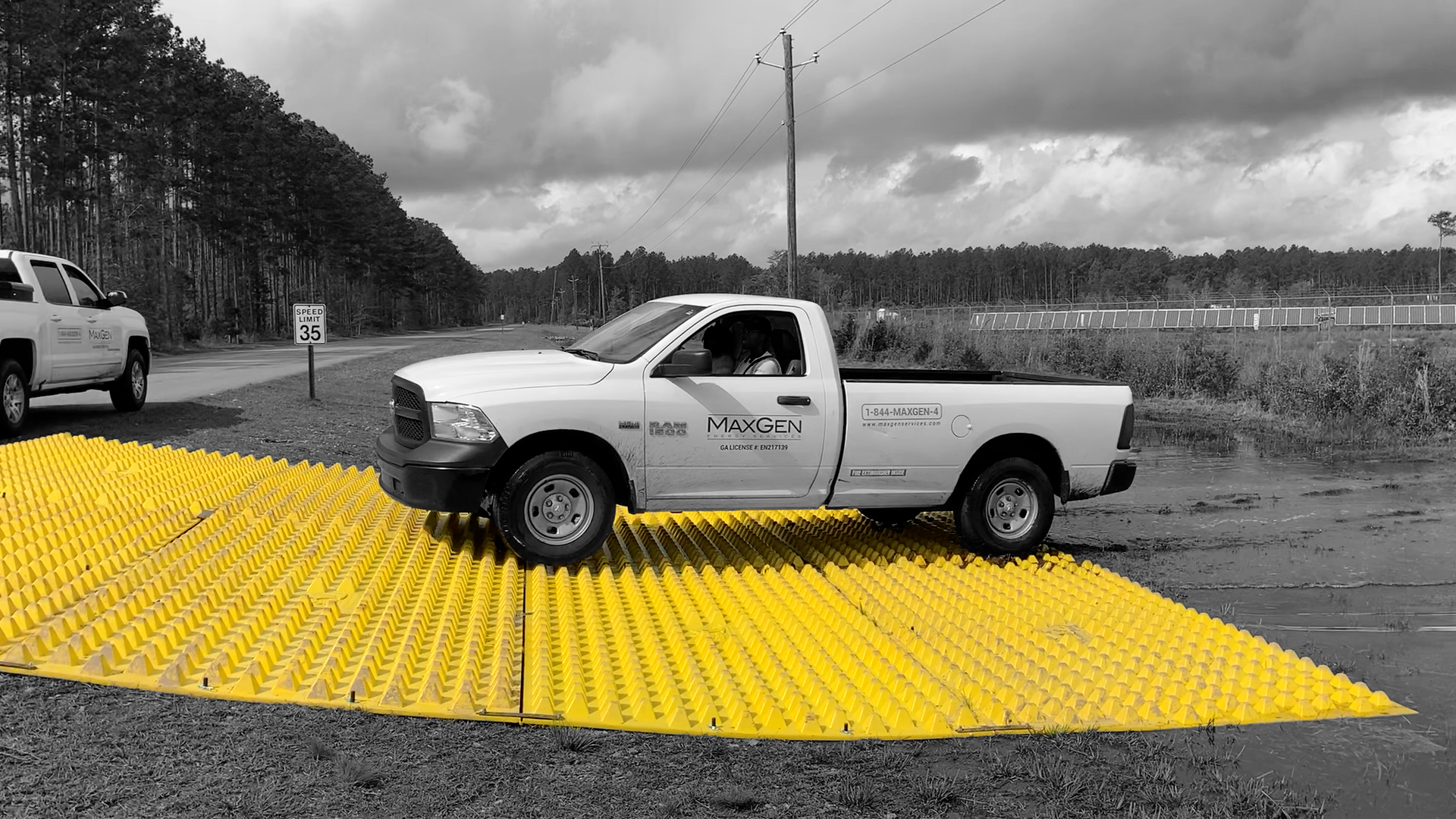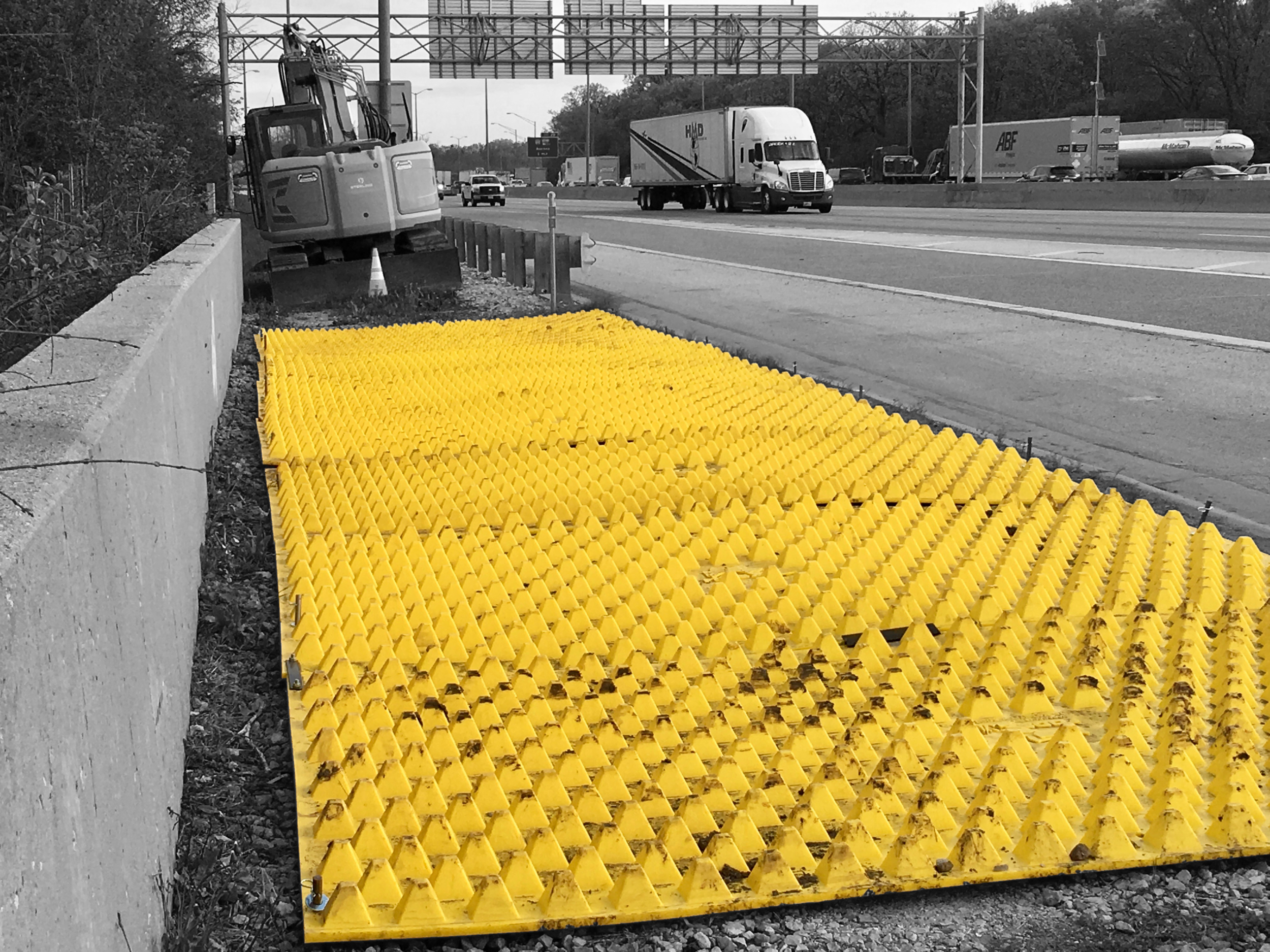Rincon Solar Farm – Rincon, Georgia
A Site Powered by the Sun
IIn Effingham County near Georgia’s eastern border, a vast field of solar panels quietly powers thousands of homes and businesses. The Rincon Solar Farm, located just outside the town of Rincon, represents one of the state’s successful large-scale renewable energy projects developed through Georgia Power’s pioneering Advanced Solar Initiative. Completed in late 2016 and fully operational by 2017, the 21-megawatt solar facility demonstrates how clean energy and responsible land management can coexist within Georgia’s growing energy landscape.
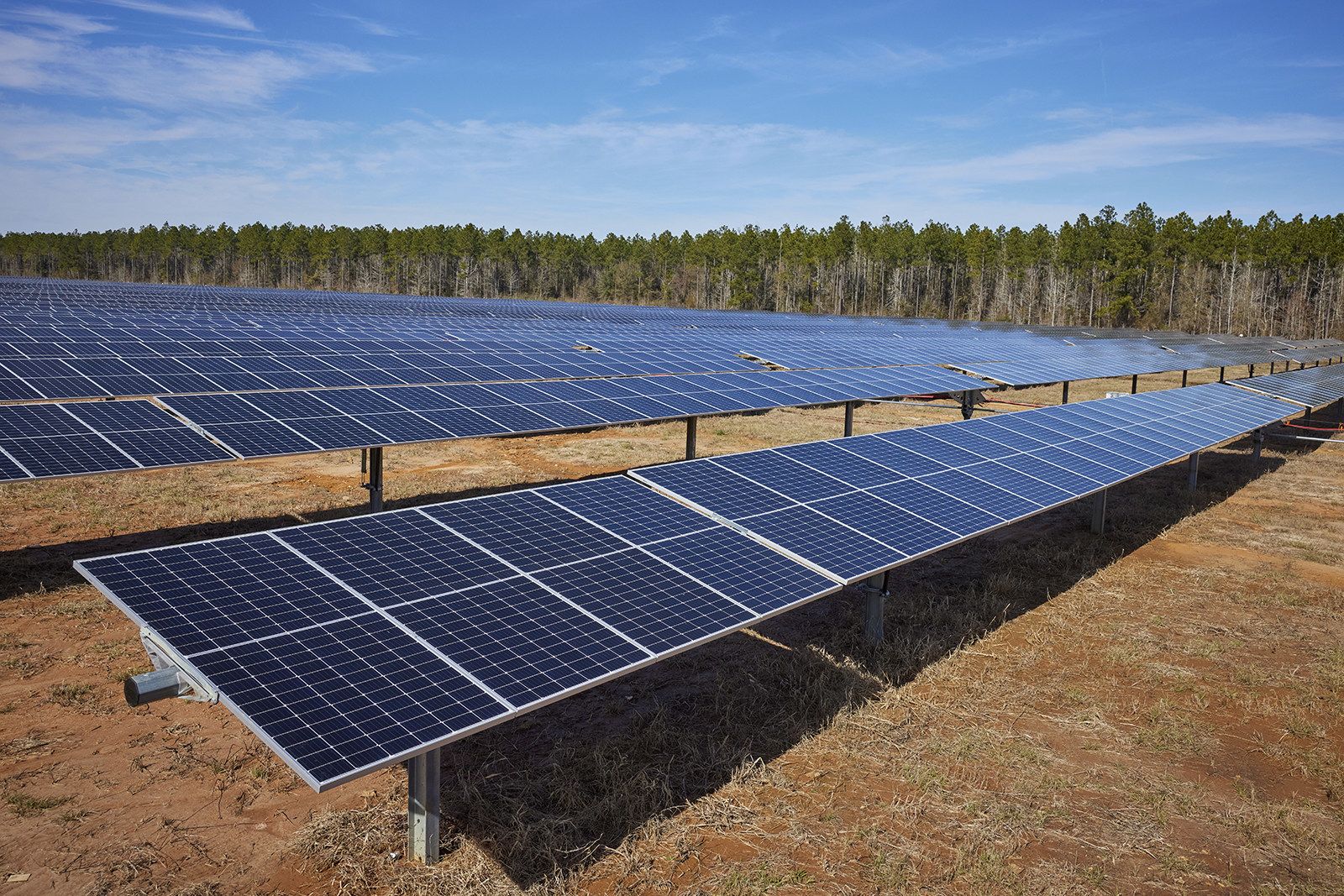
Spread across nearly 287 acres, the Rincon site features more than 67,000 photovoltaic panels mounted on single-axis trackers that rotate throughout the day to capture maximum sunlight. The system produces an estimated 16 to 25 million kilowatt-hours of electricity annually, depending on weather conditions, enough to power several thousand homes each year. Developed and operated by AES Distributed Energy, the project continues to contribute reliable renewable energy to the state’s grid while supporting Georgia Power’s long-term commitment to sustainable energy growth.
The solar farm was specifically selected due to it's compatibility to the surrounding land, and its proximity to transmission lines. This solar farm has an emphasis on both efficiency and environmental sensitivity, ensuring both needs are being met. Since the beginning, Rincon has made a significant effort to ensure they have maintained consistent energy production while reducing environmental disturbance. This site serves as a model of success in utility-scale solar developments in the Southeast.
Renewable Growth in Georgia
The Rincon Solar Farm was one of several projects developed under Georgia Power’s Advanced Solar Initiative (GPASI), a statewide effort launched in 2012 to introduce more than 200 megawatts of solar generation into Georgia’s energy mix. The initiative opened doors for both small-scale and large utility solar projects to deliver clean energy at competitive rates. This positioned Georgia as a leader in renewable energy adoption across the Southeast. Projects like Rincon showed that solar power could be a powerful source in the state’s warm, humid climate.
Bringing the Rincon Solar Farm to life was a team effort. AES Distributed Energy, part of The AES Corporation, worked with Georgia Power and local regulators to move the project from planning to reality. The group collaborated with the Georgia Environmental Protection Division (EPD), county planners, and nearby landowners to make sure every step. From permitting to construction to ongoing maintenance, they had to meet the right standards. Today, the Rincon site plays an important role in Georgia’s renewable energy network, growing in impact as solar becomes more affordable and efficient.
Beyond producing clean energy, the project has created lasting economic value for Effingham County. The construction phase brought new job opportunities and supported local electrical, grading, and engineering firms. Now that it’s fully operational, the Rincon Solar Farm continues to provide a reliable source of renewable power, helping drive community growth while supporting Georgia’s goals to reduce emissions statewide.
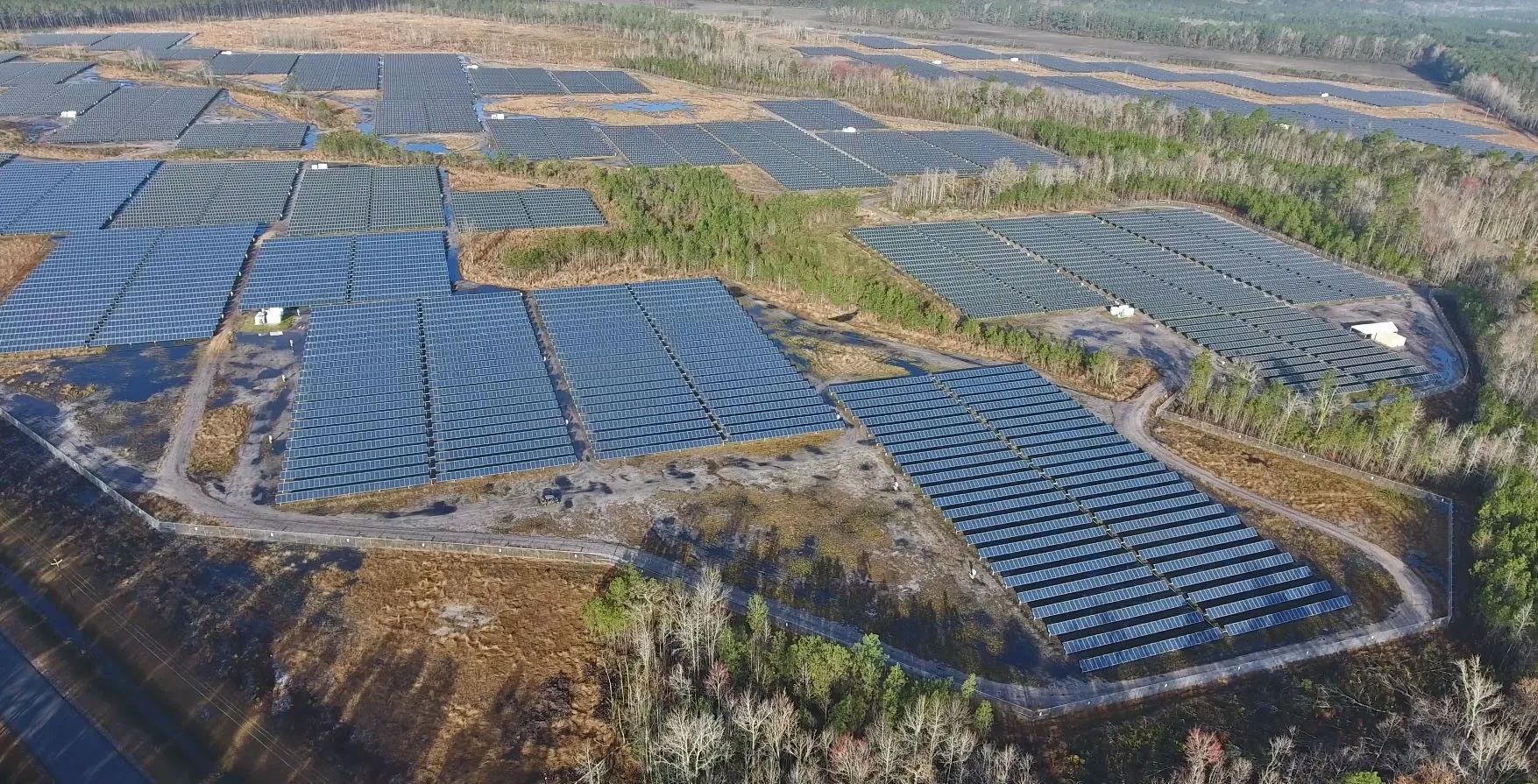
Managing Georgia’s Wet Conditions
While Georgia’s climate offers strong solar potential, it also poses distinct operational challenges based on the climate. Because of the region's clay-based solids and frequent rainfall, mud can complicate access for maintenance crews, especially on large job sites such as this rural solar farm. Heavy rain can often soak into the soil creating poor, unstable driving conditions that need some kind of stabilization at entrances and exits.
MaxGen Energy Services handles the ongoing upkeep of the Rincon Solar Farm, managing everything from electrical systems to mechanical components. Their crews are on site regularly for inspections, equipment checks, and vegetation control, work that keeps the facility running safely and efficiently year-round.
As the solar farm covers nearly 12 million square feet, getting around isn’t simple. Multiple access points are needed for service vehicles, and keeping those routes stable and safe is a big part of maintaining the site. Each entry and exit must meet strict environmental standards, ensuring the team can move equipment without damaging the surrounding land.
One of the biggest priorities is stormwater management. Every task on-site must follow the Stormwater Pollution Prevention Plan (SWPPP), which protects nearby waterways from erosion and sediment runoff. During the wetter months, crews rely on stabilized entrances and exits to reach different sections of the job without disturbing the soil. Without these, mud tracked out of sites can lead to safety hazards and potential fines. These hardened paths not only keep sediment off public roads but also help preserve the site’s natural drainage and long-term environmental balance.
Maintaining Sediment Compliance
Erosion control is a critical part of any large-scale solar farm operation in Georgia. Because of the region's wet climate there are strict rules jobsites must follow to protect the surrounding areas. The state’s environmental regulations, guided by the EPD and aligned with the Clean Water Act, require sites to have measures that prevent soil displacement and sediment runoff rainfall and varying soil textures; its maintenance operations include specific protocols for temporary access stabilization and sediment control.
Traditionally, many utility sites in Georgia have used rock entrances to clean vehicle tires and stabilize the ground near access points. While effective initially, rock pads often degrade quickly in wet soil conditions, requiring frequent replacement and hauling. The cost of rock pads can quickly add up in a job of this complexity and size. At Rincon, the project team brought on a more durable and reusable approach that would minimize waste and reduce restoration time after maintenance work.
To meet those goals, MaxGen deployed a temporary composite mat system that provides effective trackout control without excavation or permanent alteration of the ground. Reusable systems, FODS Trackout Control Mats have been used at the site to stabilize access points and maintain compliance with Georgia’s stormwater regulations. The mats feature hard pyramids that flex vehicle tires to remove sediment before trucks exit the work zone, ensuring compliance with SWPPP standards. The mats clean the tires efficiently to ensure mud and debris isn’t getting tracked out onto the street. Because FODS sit on top of the soil, the mats prevent rutting and do not require topsoil removal or regrading. Once maintenance is complete, they are lifted, cleaned, and moved to another part of the site for reuse.
This approach helps maintenance crews stay compliant while keeping the site as undisturbed as possible. It also supports the project’s renewable energy goals by cutting down on waste and reducing the need for extra material hauling. Because the system can be reused, it helps lower operating costs, allows for quicker maintenance, and reinforces the project’s commitment to environmental responsibility.
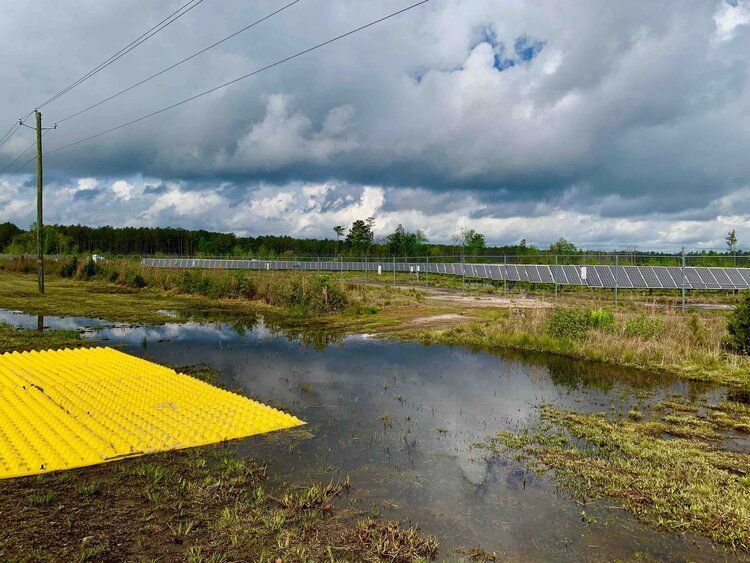
Cleaner Access and Sustainable Operations
The operational phase of a solar project is just as important to sustainability as the construction stage. At Rincon, every part of site maintenance is focused on protecting both the solar infrastructure and the surrounding environment. Crews regularly monitor drainage channels, check erosion controls, and manage vegetation to keep the soil stable and prevent runoff from reaching nearby creeks and wetlands.
The use of reusable stabilized entrances shows a bigger shift in how renewable energy sites think about efficiency and care for the land. By cutting down on material waste, fuel use, and the need for heavy equipment, these systems help lower the project’s overall impact while protecting the ground around it. Fewer truck deliveries and removals mean less traffic, less wear on local roads, and fewer disruptions for nearby communities. Over time, this approach not only supports smoother maintenance but also helps preserve the integrity of the land, keeping the site cleaner, safer, and more sustainable for years to come.
For AES Distributed Energy and Georgia Power, the Rincon Solar Farm serves as a practical example of sustainable asset management. The project shows how renewable energy operations can stay efficient, maintain compliance and have low environmental impact. By keeping compliant they create innovative maintenance practices while adhering to strict environmental regulations.
Looking Ahead
The Rincon Solar Farm stands as a milestone in Georgia’s journey toward renewable energy leadership. After over nearly a decade, the site highlights both the reliability of solar technology and the importance of long-term planning. As Georgia continues to expand its renewable portfolio, lessons from projects like Rincon will set a standard for future development, especially in areas with challenging climate and soil conditions.
For MaxGen Energy Services and AES Distributed Energy, maintaining the site’s performance requires balancing technical expertise with environmental responsibility. Their ongoing focus on efficiency, compliance, and sustainability helps ensure the Rincon Solar Farm will continue producing clean, reliable energy well into the future.
By blending dependable solar production with thoughtful maintenance and responsible land management, the Rincon Solar Farm shows how renewable energy can coexist with the natural environment. In Georgia’s humid, rain-prone climate, it stands as proof that sustainable design and reusable systems can work hand in hand to power a cleaner and more resilient future.
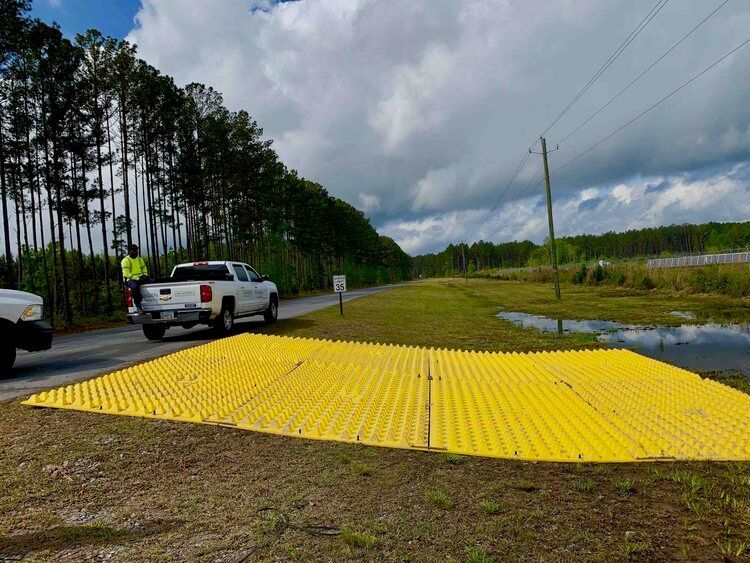
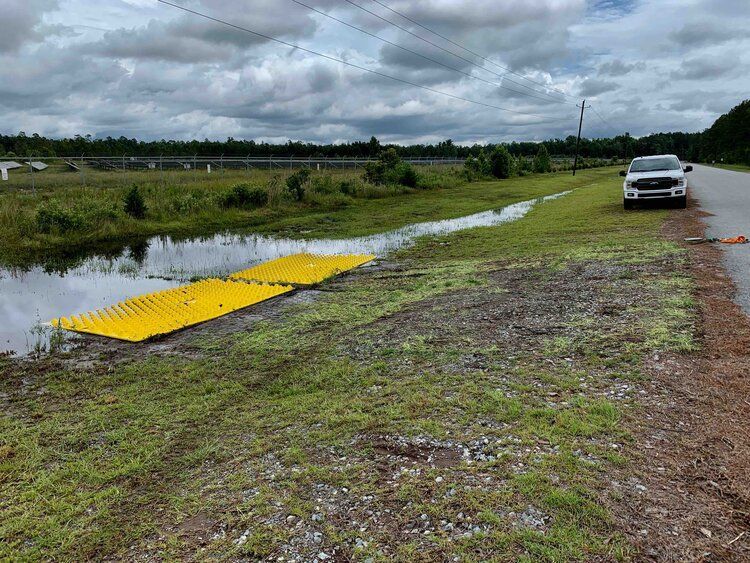

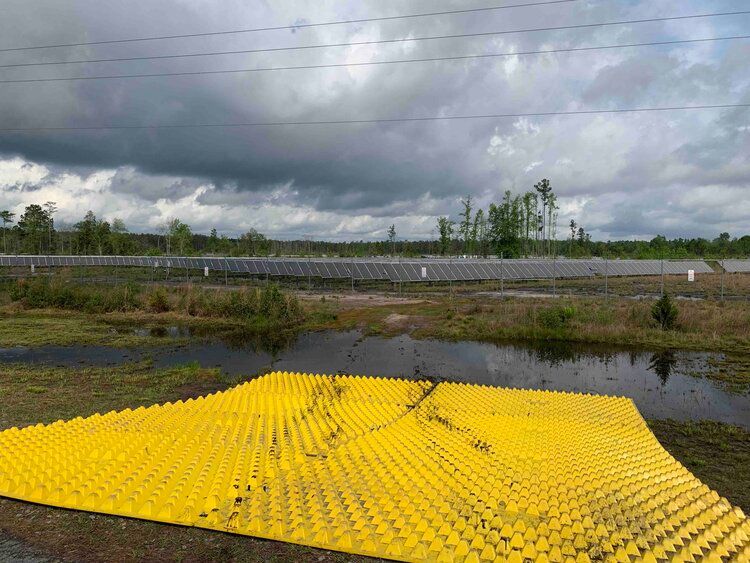
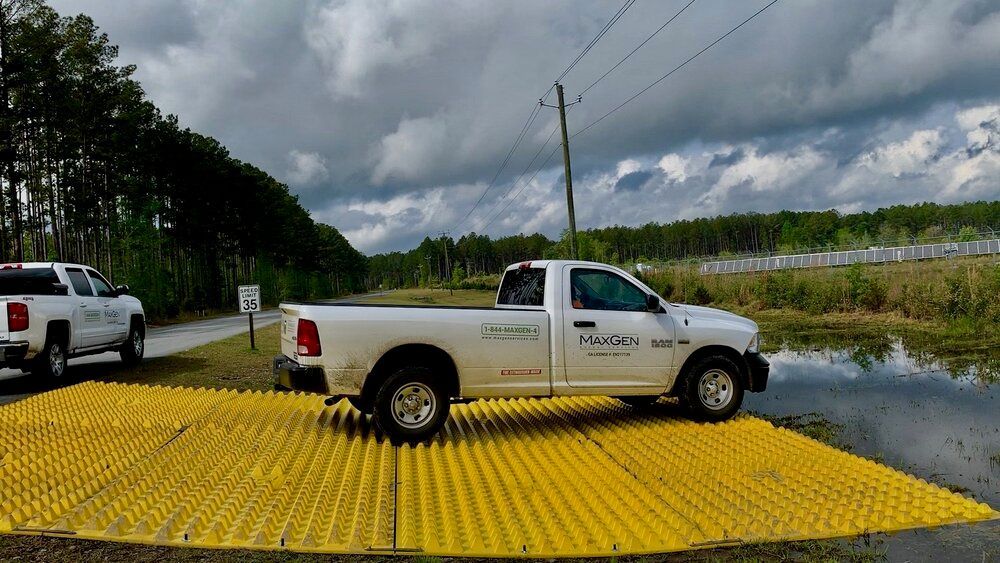
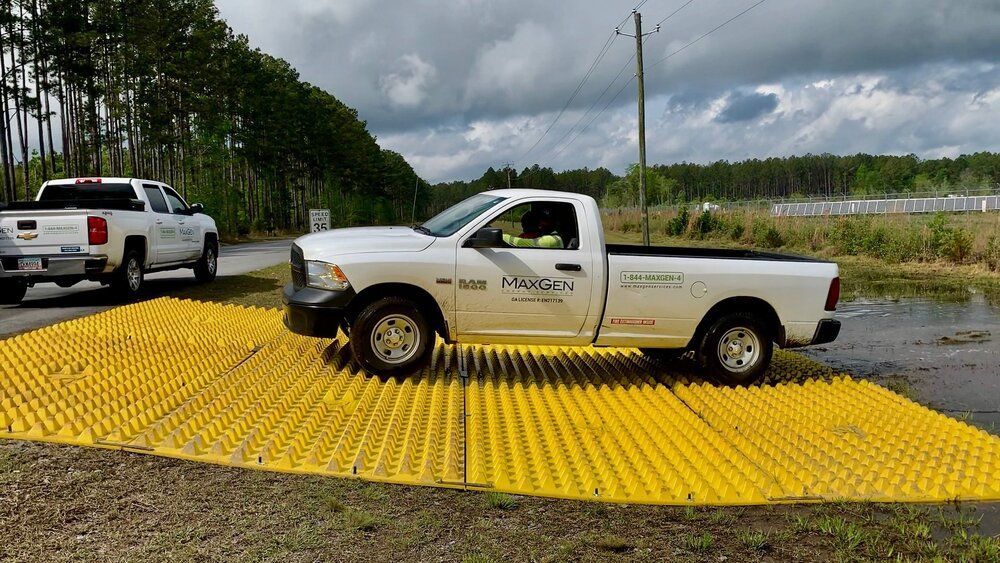
About FODS
Based in Centennial Colorado, FODS Trackout Control System replaces ineffective and costly traditional rock stabilized construction entrances, saving you valuable time and money. Our proprietary mat design works to effectively remove mud and sediment from your vehicle tires without damaging the tire or the ground’s surface. We provide the only durable, reusable, and environmentally friendly trackout control system currently available on the market. FODS Trackout Control Mats are 100% Made in the USA and are reusable and recyclable.
